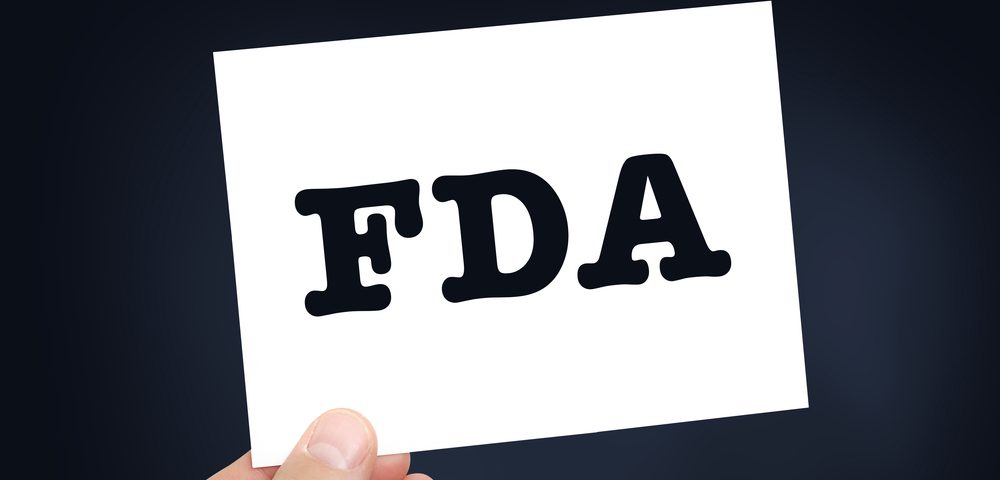The U.S. Food and Drug Administration (FDA) has approved Kymriah (tisagenlecleucel) for the treatment of adults with relapsed or refractory large B-cell lymphoma, Novartis announced.
Specifically, the approval of intravenous Kymriah suspension is for patients after two or more systemic therapies and includes diffuse large B-cell lymphoma (DLBCL, the most common form of non-Hodgkin’s lymphoma), high grade B-cell lymphoma, and DLBCL arising from follicular lymphoma. The FDA’s decision comes after a priority review process that began in January.
In August 2017, Kymriah became the first approved CAR T-cell therapy in the U.S. for the treatment of relapsed or treatment-resistant B-cell acute lymphoblastic leukemia (ALL) in children and adolescents. It now is the only CAR-T cell therapy approved by the FDA for two distinct indications: NHL and B-cell ALL.
CAR-T therapies involve the genetic engineering of a patient’s own T-cells — a type of immune cell — to target proteins located on the surface of cancer cells.
In a press release, Liz Barrett, CEO at Novartis Oncology, described Kymriah as “a potentially transformative therapy with durable and sustained response rates and a well-characterized safety profile to help patients in dire need of new treatment options.”
“We look forward to leveraging all of our learnings and new capabilities from the initial launch of Kymriah in pediatric and young adult B-cell ALL for this larger group of patients,” Barrett said.
The development of Kymriah resulted from a collaboration between Novartis and University of Pennsylvania (UPenn). “The goal of Kymriah is to provide physicians with a therapy that has demonstrated durable response rates in relapsed or refractory DLBCL patients, a patient population that has endured multiple rounds of chemotherapy,” said Stephen J. Schuster, MD, a professor at the UPenn Perelman School of Medicine.
“With this approval, physicians now have a meaningful therapeutic option that can achieve and maintain a sustained response without stem cell transplant along with a consistent safety profile,” Schuster said.
The FDA’s decision is based on results from the Phase 2 JULIET clinical trial (NCT02445248) in adults with relapsed or refractory DLBCL. The study recruited patients from 27 sites in the U.S., Canada, Australia, Japan, and six countries in Europe.
Kymriah eradicated cancer in 37 percent of patients. Also, treatment of 106 patients with Kymriah demonstrated an overall response rate — an indication of tumor size reduction for a given amount of time — of 50 percent, with 32 percent showing a complete response. Importantly, more than half of patients were still responding to the therapy by the time of data analysis, which indicates a sustained response.
Regarding Kymriah’s safety, severe or life-threatening (grade 3/4) cytokine release syndrome (CRS, which results from high-level immune activation) occurred in 23 percent of patients. Grade 3/4 neurologic events were observed in 18 patients, but caused no deaths, while encephalopathy occurred in 11 patients.
Grade 3/4 reductions in blood cells lasting more than 28 days and affecting more than 25 percent of patients included thrombocytopenia (platelets) and neutropenia (neutrophils). Severe or life-threatening infections occurred in 25 percent of patients.
To guarantee that all eligible patients have access to Kymriah, Novartis continues to collaborate with the Centers for Medicare and Medicaid Services (CMS) to create an appropriate value-based pricing approach. The company also created a Risk Evaluation and Mitigation Strategy (REMS) to educate healthcare professionals about the risks associated with Kymriah. Novartis further established certified treatment centers across the country to ensure safe patient access.
In January 2018, the European Medicines Agency granted accelerated assessment to Novartis’ Marketing Authorization Application for Kymriah for the treatment of children and adolescents with B-cell ALL and adults with DLBCL who are ineligible for autologous stem cell transplant, which uses the patients’ own cells. The company said it plans to file additional regulatory submissions for Kymriah beyond the U.S. and European Union in 2018.


